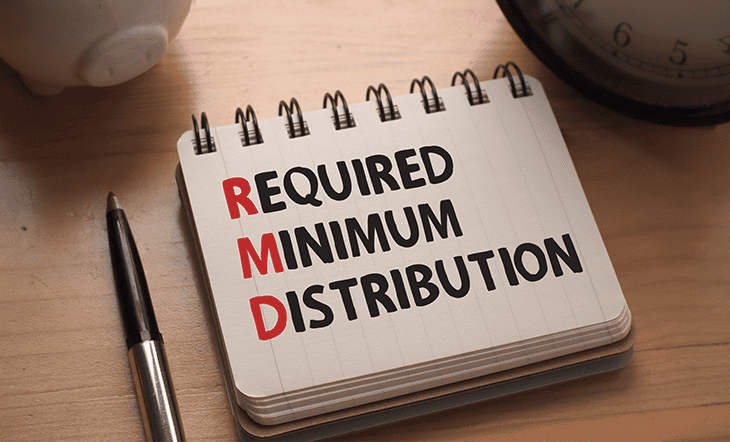It’s great that you are ready to start your investment journey. However, with that decision comes the big question: Where do you invest your money and how do you get started? Additionally, what goals do you set, and do you make the investments yourself or seek professional help?
Investing as a concept can be quite intimidating, and the internet may sometimes be a rabbit hole of often contradictory advice, interspersed with head-spinning jargon. Do not worry, Paladin Registry can help you find financial advisors who can talk to you in a manner that you will understand!
Table of Contents
Investing vs. Saving
For starters, it is mandatory to understand that investing and saving are similar, but not the same. Saving is putting away money that you don’t need or use immediately for emergencies or for future purchases. The money in your cookie jar is the money you save. There is virtually no risk involved here and no additional returns you can get on that money. Investing is a little bit more complex, but definitely not the math problem you just couldn’t crack back at school. Investing is when you put a part of your money in specific financial products – you make an investment right now, and watch it grow over time. At the time of maturity of that product, you may get back your money (the “principal” that you invested) and an additional income called the “interest”.
With great power comes greater responsibility; with great returns comes greater risk.
Before you invest, make sure your emergency fund is full to the brim. Ensure that your liabilities have been provisioned for before tying your money up in investments. If you haven’t done that, you may want to discuss it with someone knowledgeable, like a financial advisor, to help you choose and time your investments.
Things to consider before investing
It is imperative to assess your current financial situation and set realistic financial goals to figure out the right investment portfolio mix may work for you.
- Your
age - Your
income - Your
financial goals - The
amount of risk you can take - Your
time horizon
Most people think of their retirement when they decide to invest. While it makes sense to save as much as possible in the years to retirement for an enjoyable retired lifestyle, returns on investments can also help you meet various financial goals – owning your own home, putting your children through college, buying a car, a family vacation, etc.
Here are 3 investing styles you should be aware of before you start investing:
1. Cookie Jar approach: Cash as an asset
The first step to investing is saving, and the Cookie Jar method is the easiest approach to help you save money. This style is derived from grandma’s secret to running the household! Small amounts of money is put into different envelopes or cookie jars with labels determining the purpose of the money. The modern equivalent of the cookie jar is your online savings account with your bank. This method helps people allocate money to different buckets and manage expenses. It prioritizes cash as an asset and gives importance to liquidity or easy access to funds. Experts call it relatively zero-risk, though no financial product is ever zero risk. The returns from this approach are low.
2. Point, click, and invest with Robo-advisors
These wonder-platforms arrived a little more than a decade ago and are increasingly finding favor with investors. They provide automated, algorithm-driven investment advice and services with minimal human intervention, thereby removing the emotional and behavioral aspects of financial decision-making. Robo-advisors take most of the guesswork out of investing. The low fees, low cost threshold, and ease of use present great allure for beginners to get started on long-term investing. Unfortunately, they don’t have investment track records to know how they’ve done, and the ones that do have subpar performance as well as the lack of an experienced investment professional.
3. Hire a Financial advisor to help with your investments
A common wall that almost everyone hits is the question of whether or not to hire a financial advisor. While there is a cost to engaging one, research has found that there is a quantifiable increase in wealth when working with an advisor. They come armed with experience and knowledge to help you strategize for maximum gains from investments. Getting a fiduciary advisor on board will take investment management off your hands, but you’d want to make sure the advisor has financial planning expertise as well, therefore leaving you with more worry-free time to spend with your loved ones. Many advisors say they offer financial planning but getting a sample plan from a few advisors will help you differentiate between their abilities.
Got a raise? An inheritance? A major life event? Ready to take control of your financial life? Answer a few simple questions and get matched with a background-verified fiduciary advisor near you with the free match tool on the Paladin Registry website.
6 Common Investment Options for Beginners
1. 401(k) and IRA
A 401(k) derives its name from subsection 401(k) of the Internal Revenue Code that defines the rules and regulations of this investment. It is an account, like your savings account, in which you put money that can be used after you retire. The money you put now compounds and grows over time, and you can use it for a comfortable lifestyle after you retire. An advantage of the 401(k) plan is that it is a tax-deferred product, which means you pay less tax for the years you contribute to the 401(k). Unlike the savings account, where the bank takes ownership of the money and pays a fixed interest over time, the 401(k) plan offers great flexibility to authorize the fund manager with whom the account is opened to invest your money in higher-yielding investments such as stocks, bonds and mutual funds.
The best part of 401(k), however, is that it is an employer-sponsored retirement account. Most employers offer a 100% match to your contributions up to 10% of your income. So, if you put 10% of your salary into your 401(k), your employer will also put 10% of your salary into your 401(k) above and beyond your normal income. No other investment offers this kind of deal. If your employer offers matching funds for your retirement plan, it is highly advised that you sign up and reap the benefits of this plan.
2. Insurance
Insurance is bought to protect oneself from losing money in case of unforeseen events. You pay a monthly or annual ‘premium’ to the insurance company and get this money back in the case of a bad event affecting the insured person or asset. The types of insurance that are recommended for you to have are life, health, long-term disability, and auto insurance.
Some employers provide insurance as part of their contract. Always check with your employer first for available coverage. If your employer doesn’t offer the type of insurance you want, obtain quotes from several insurance providers before you make your choice.
3. Stocks
Investing in stocks is a common way for beginners to gain investing experience. When you buy a share, you become a part-owner of the company whose stock you purchased. On the other hand, the associated risks are higher too. It is said that the stock market takes the stairs up, but it takes the elevator down. As long as you are investing in high quality companies with great management teams at a reasonable price you should do well over the long term. Doing this is easier said than done that’s why we’d recommend using an advisor who has a long term track record of performing well while not taking too much risk at the same time.
Starting with a small amount gives the investors the required confidence to invest further, once a basic understanding is established of stock market moves.
4. Real Estate
The allure for real estate comes from its ability to generate passive income for the long-term and its tremendous price appreciation capability over time. Additionally, you get predictable cash flow and tax advantages as well!
On the flip side, it can be a very expensive affair that requires you to put down a significant amount of money up front to begin real estate investing. A good rule of hand when it comes to investing in real estate is that if you cannot afford to pay in cash for the purchase, you should at least be able to afford the mortgage payments, even without rental income.
5. Mutual Funds
Mutual funds are a great alternative to their cousin – equities. However, with mutual funds, you buy only a share of a managed fund that is invested in different companies, or in a mix of asset classes altogether (including government securities).The individual components of your mutual fund don’t matter to you directly as long as the overall performance of the fund meets your expectations. While mutual funds too are subject to market risk, the fact that an experienced fund manager is in charge of your investment, monitoring, and moving money around within the composition of your chosen fund, helps to alleviate a part of the risk.
There are 3 ways to buy Mutual Fund shares in the United States. You have the option to purchase through a broker, a mutual fund company, or as part of a retirement plan. Though mutual funds are a decent option you must remember that they carry an extra layer of fees over and above what your advisor is charging. This extra layer usually averages over 1.5% per year on top of the 1% your advisor is charging.
6. Fixed Income Investing: Bonds, Certificates of Deposit (CDs)
This is a safe investment avenue that prioritizes capital protection and income generation. It encompasses products such as government and corporate bonds, money market funds, and CDs. It is highly recommended to include a choice pick of fixed income instruments in your portfolio for diversification sake, as a buffer to riskier investments. If your equity investments are your car speeding up a highway, your fixed income products in your portfolio are your airbags. Fixed income products are less sensitive to macroeconomics and provide a steady rate of interest for the duration of your investment. That doesn’t make them risk-free. Fixed income investments are still subject to inflation, interest rate changes, and credit risk in corporate bonds.
What makes people averse to large amounts of transactions in a fixed income is the high minimum investment requirements, high transaction costs, and a lack of liquidity in the bond market. Additionally, the returns are less, given that the risk is lesser.
Dos and Don’ts of Investing
| DO | DON’T |
|---|---|
| Research well-Just because you are a rookie doesn’t mean you have to invest like one | Don’t invest money you need right away. Meet your expenses and invest the remainder |
| Your emergency fund should be full before you start investing – usually, around 6 months of your pay | Don’t invest in what you don’t understand. Read the fine print, understand the risk and reward |
| Think long-term and leave your investments alone. Give it time to grow | Don’t be afraid to rebalance your portfolio or review your investment decisions |
| Spread your risk. Diversify your portfolio by investing in different asset classes | Don’t try to time the market you can’t. Nobody can |
| Be consistent with investments. Stay motivated and contribute regularly | Don’t let emotions guide your investment. Use media as a tool, not as an advisor |
| Invest early and in low-cost investments | Don’t procrastinate. Time indeed is money. |
| Check with your advisor on what suits your requirements | Don’t forget about your taxes. Also, ensure that you look at the fees and charges of investments |
To learn more about the most suitable tax-saving strategies for your specific financial requirements, visit Dash Investments or email me directly at dash@dashinvestments.com.
About Dash Investments
Dash Investments is privately owned by Jonathan Dash and is an independent investment advisory firm, managing private client accounts for individuals and families across America. As a Registered Investment Advisor (RIA) firm with the SEC, they are fiduciaries who put clients’ interests ahead of everything else.
Dash Investments offers a full range of investment advisory and financial services, which are tailored to each client’s unique needs providing institutional-caliber money management services that are based upon a solid, proven research approach. Additionally, each client receives comprehensive financial planning to ensure they are moving toward their financial goals. CEO & Chief Investment Officer Jonathan Dash has been covered in major business publications such as Barron’s, The Wall Street Journal, and The New York Times as a leader in the investment industry with a track record of creating value for his firm’s clients.
Other posts from Jonathan Dash
Here’s Why Every Tax Season is a Good Time to Revisit Your Financial Investments
The tax season is the perfect time to take a closer look at your financial investments. The 2025...
3 Key Financial Habits That Set Wealthy Retirees Apart
The wealthy may seem to have it all figured out, but their success is the result of years...
Things You Should Know About RMDs if You Are Turning 73
Retirement accounts like the 401(k) and the Individual Retirement Account (IRA) are broadly classified as traditional, and Roth based on their taxability....




